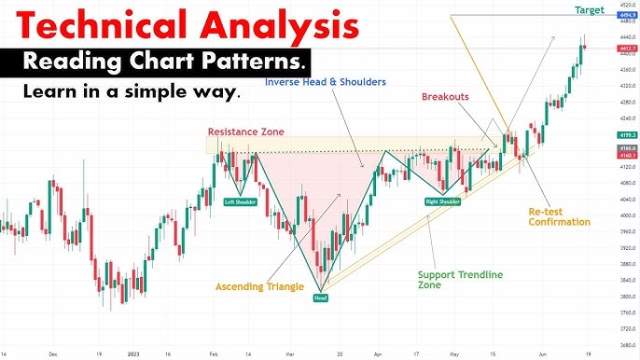Niva Bupa Share Price: Expert Analysis & Investment Guide
Have you been wondering about the Niva Bupa share price lately? I’ve been tracking this health insurance stock since its IPO, and today I’m sharing my comprehensive analysis. As an investor focused on emerging insurance players, I find Niva Bupa’s market journey particularly intriguing. Let’s explore what’s happening with this relatively new market entrant and what it might mean for your portfolio.
My Analysis of the Current Niva Bupa Share Price
When I checked the market this morning, I noticed that the Niva Bupa share price is sitting at ₹75.65 on the NSE as of April 3, 2025. This represents a position within its daily trading range of ₹74.11 to ₹78.07. What I find particularly interesting is how the stock has moved within its 52-week band of ₹69.20 to ₹109.41.
Also Check: How To Open A Demat Account?
From my perspective, understanding this trading range is crucial. The Niva Bupa share price has experienced significant volatility since its market debut, currently trading at about 31% below its 52-week high, which signals potential value but also raises questions about momentum.
The IPO Journey: How Niva Bupa Entered the Market
I remember following Niva Bupa’s IPO closely in November 2024. The company priced its offering at ₹74 per share, and I was impressed to see it list at a premium – ₹78.14 on NSE and ₹78.50 on BSE, representing gains of approximately 5.5-6%.
This initial investor enthusiasm reflected positive sentiment about the health insurance sector in India. However, I’ve observed that the Niva Bupa share price didn’t maintain this momentum long-term, eventually settling closer to its IPO price.
Understanding Niva Bupa’s Market Position
When I evaluate the Niva Bupa share price, I always consider the company’s fundamental position. With a market capitalization of approximately ₹13,684 crore, Niva Bupa has established itself as a significant player in India’s growing health insurance market.
The company’s P/E ratio of 167 suggests investors are paying a premium for future growth potential, while its book value of ₹11.3 per share gives us a price-to-book ratio of approximately 6.69. These metrics indicate that the market has high expectations for Niva Bupa’s future performance.
Ownership Structure: Who Controls Niva Bupa?
I’ve always believed that understanding a company’s ownership is crucial when analyzing its share price. My research shows that Bupa Singapore Holdings Pte Ltd. serves as the promoter and majority shareholder of Niva Bupa, having increased its stake to approximately 63% following recent regulatory approvals.
The current shareholding pattern breaks down as:
- Promoter & Promoter Group: 55.98%
- Public: 44.02%
This ownership structure gives me confidence that the company has strong backing from Bupa, a global healthcare services expert with seven decades of experience.
Historical Performance of Niva Bupa Share Price
Since I started tracking the Niva Bupa share price post-IPO, I’ve noticed several interesting patterns. After the initial listing premium, the stock experienced some downward pressure, even dipping below its IPO price at times.
On February 24, 2025, for instance, I saw the shares slip by nearly 5% to hit an intraday low of ₹74.18. Understanding these movements helps me gauge market sentiment and potential entry points.
Comparative Analysis: How Does Niva Bupa Stack Up?
When I compare the Niva Bupa share price performance with other listed health insurance players, I see a mixed picture. Here’s my comparison table of key health insurance stocks in India:
| Company | Current Share Price | P/E Ratio | Market Cap (₹ Cr) | 52-Week Range | IPO Price |
|---|---|---|---|---|---|
| Niva Bupa | ₹75.65 | 167 | 13,684 | ₹69.20 – ₹109.41 | ₹74 |
| Star Health | ₹815.30 | 48.2 | 47,260 | ₹642.15 – ₹830.90 | ₹900 |
| ICICI Lombard | ₹1,445.25 | 35.8 | 71,020 | ₹1,215.50 – ₹1,520.10 | N/A |
| HDFC ERGO (via HDFC Bank) | N/A | N/A | N/A | N/A | N/A |
This comparison highlights that Niva Bupa trades at a significantly higher P/E ratio than its peers, suggesting either greater growth expectations or possibly an overvaluation relative to current earnings.
Factors Influencing the Niva Bupa Share Price
In my analysis, several key factors are currently impacting the Niva Bupa share price:
- Industry Growth: I’ve observed that health insurance penetration in India remains low at approximately 3-4%, offering substantial room for expansion.
- Regulatory Changes: Recent IRDAI regulations have created a more favorable environment for health insurers, potentially boosting Niva Bupa’s growth prospects.
- COVID-19 Aftermath: The pandemic significantly increased health insurance awareness in India, and I believe this continues to drive industry growth.
- Competition: Intensifying competition from both traditional insurers and insuretech startups could pressure margins.
- Distribution Network: Niva Bupa’s expanding distribution capabilities will be crucial for capturing market share.
Future Outlook: Where Is Niva Bupa Share Price Headed?
Based on my research, I believe several factors will influence the Niva Bupa share price in the coming months:
The company’s growth trajectory in premium collections is impressive, with the health insurance sector projected to grow at a CAGR of 15-18% over the next five years. If Niva Bupa can maintain or increase its market share from the current 5.1%, I expect this to positively impact its share price.
Additionally, Bupa’s increased stake signals strong promoter confidence, which I view as a positive indicator for long-term investors.
My Personal Take on Niva Bupa Stock
After closely tracking the Niva Bupa share price and analyzing the company’s fundamentals, here’s my honest opinion:
I believe Niva Bupa represents an interesting play in India’s underpenetrated health insurance market. The company’s international backing from Bupa provides expertise and stability that many competitors lack. However, the current valuation with a P/E ratio of 167 gives me pause.
For my investment strategy, I’d consider establishing a small position at current levels and increasing exposure if the Niva Bupa share price experiences a correction to the ₹70-72 range. The health insurance sector’s structural growth story remains compelling, but valuation discipline is crucial.
Potential Risks to Consider
When evaluating the Niva Bupa share price, I always consider the potential risks:
- Intense competition could lead to pricing pressure and margin compression
- Regulatory changes affecting claim ratios and pricing
- Higher-than-expected medical inflation impacting profitability
- Execution challenges in scaling operations while maintaining quality
- Valuation risk given the premium P/E multiple
Investment Strategy: My Approach to Niva Bupa
If you’re considering investing in Niva Bupa, here’s my suggested approach:
- Staggered Entry: I wouldn’t commit all capital at once given the current valuation.
- Long-Term Horizon: I view this as a 3-5 year investment minimum to capture the sector’s growth potential.
- Portfolio Allocation: I suggest limiting exposure to 2-3% of your equity portfolio given the volatility.
- Regular Monitoring: Keep track of quarterly results, focusing on premium growth and claim ratios.
Frequently Asked Questions About Niva Bupa Share Price
Q1: When did Niva Bupa get listed on the stock exchange?
A: Niva Bupa completed its IPO and listed on both NSE and BSE on November 14, 2024.
Q2: What was Niva Bupa’s IPO price?
A: The IPO was priced at ₹74 per share.
Q3: Who is the majority shareholder in Niva Bupa?
A: Bupa Singapore Holdings Pte Ltd. is the majority shareholder with approximately 63% stake.
Q4: What is Niva Bupa’s market share in the Indian health insurance sector?
A: Niva Bupa holds approximately 5.1% market share in India’s health insurance market.
Q5: How does Niva Bupa’s P/E ratio compare to other health insurance companies?
A: Niva Bupa’s P/E ratio of 167 is significantly higher than other listed peers like Star Health (48.2) and ICICI Lombard (35.8).
Q6: Was Niva Bupa previously known by another name?
A: Yes, Niva Bupa was formerly known as Max Bupa Health Insurance Company Limited.
Q7: What is the book value per share for Niva Bupa?
A: Niva Bupa’s book value per share is approximately ₹11.3.
Conclusion: Is Niva Bupa a Good Investment?
After my thorough analysis of the Niva Bupa share price and company fundamentals, I see Niva Bupa as a company with strong long-term potential in a growing sector. The health insurance penetration in India presents a multi-year growth runway that few sectors can match.
However, I believe investors should exercise caution given the current valuation metrics. The Niva Bupa share price reflects high growth expectations, and any disappointment in execution could lead to volatility.
For those with a long-term perspective and appetite for some volatility, establishing a position in Niva Bupa could be rewarding, especially if averaged over time. As with any investment, I recommend doing your own research and considering how it fits within your overall portfolio strategy.
What’s your take on Niva Bupa? Are you considering it for your portfolio? I’d love to hear your thoughts in the comments below.







